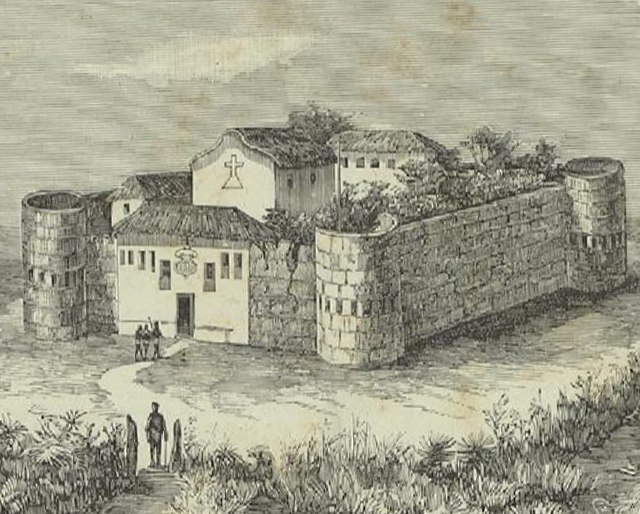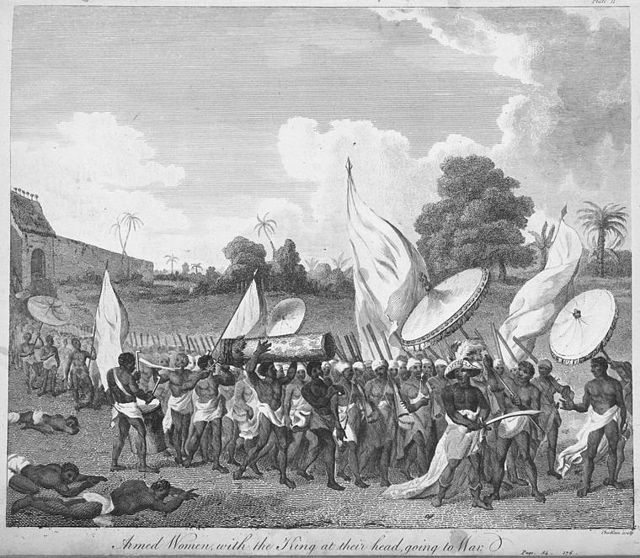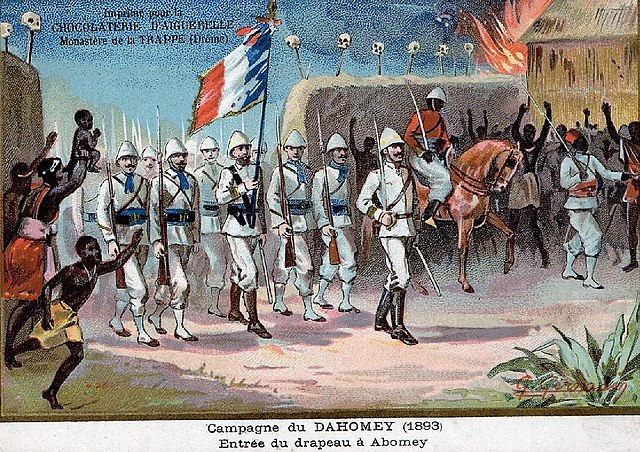The Kingdom of Benin, also known as the Edo Kingdom or Benin Kingdom, is a kingdom within what is now southern Nigeria. It has no historical relation to the modern republic of Benin, which was known as Dahomey from the 17th century until 1975. The Kingdom of Benin's capital was Edo, now known as Benin City in Edo State, Nigeria. The Benin Kingdom was "one of the oldest and most developed states in the coastal hinterland of West Africa". It grew out of the previous Edo Kingdom of Igodomigodo around the 11th century AD, and lasted until it was annexed by the British Empire in 1897.
The leopard, totem of the kings and emperors of Benin
The python, totem of the kings and emperors of Benin
Bronze head of a queen mother, early 16th century
Depiction of two women from the kingdom of Benin, 1797
Benin, officially the Republic of Benin, and also known as Dahomey, is a country in West Africa. It is bordered by Togo to the west, Nigeria to the east, Burkina Faso to the north-west, and Niger to the north-east. The majority of its population lives on the southern coastline of the Bight of Benin, part of the Gulf of Guinea in the northernmost tropical portion of the Atlantic Ocean. The capital is Porto-Novo, and the seat of government is in Cotonou, the most populous city and economic capital. Benin covers an area of 114,763 km2 (44,310 sq mi), and its population in 2021 was estimated to be approximately 13 million. It is a small, tropical country. It is one of the least developed, with an economy heavily dependent on agriculture, and is an exporter of palm oil and cotton. Some employment and income arise from subsistence agriculture.
The Portuguese Empire was the longest European presence in Benin, beginning in 1680 and ending in 1961 when the last forces left Ajudá.
Dahomey Amazons with the King at their head, going to war, 1793.
A French depiction of the conquest of Dahomey in 1893
Yayi Boni's 2006 presidential inauguration








